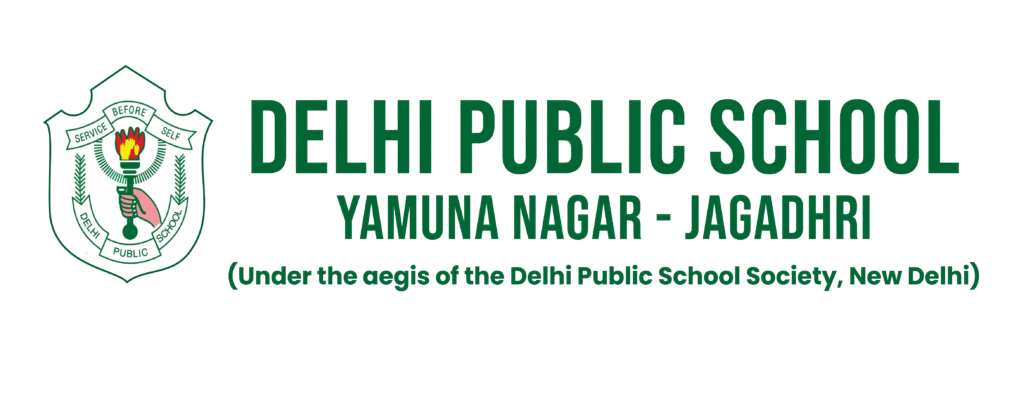How Do Field Trips Improve the Learning Experience at Boarding School?
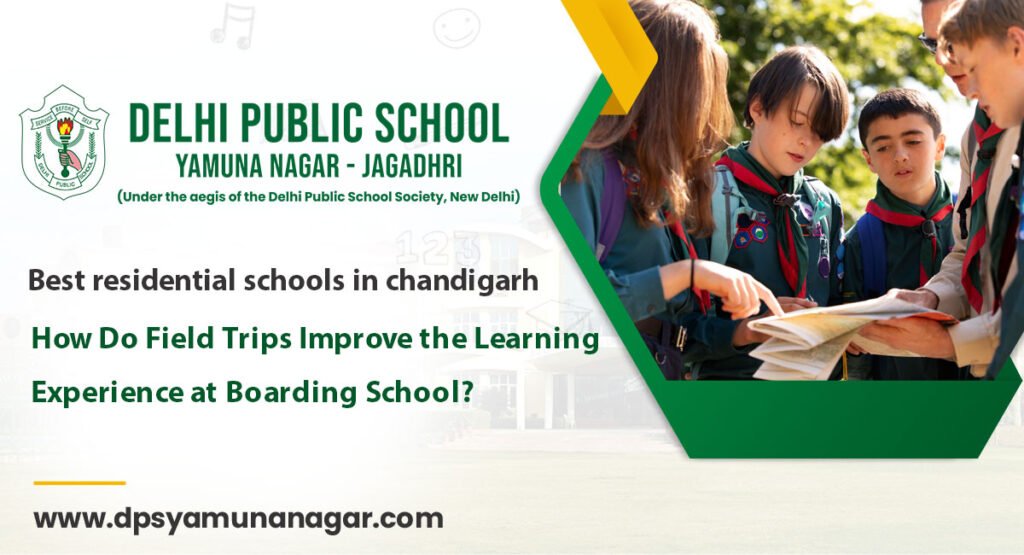
Field trips have long been an integral part of education, offering students opportunities to learn beyond the classroom. This experiential learning is especially impactful in boarding schools, where students are immersed in a residential educational environment. In premier institutions like the best CBSE school in Chandigarh and top CBSE boarding schools in North India, field […]
Advantages of Solving CBSE Sample Papers for Higher Exam Scores at Boarding Schools
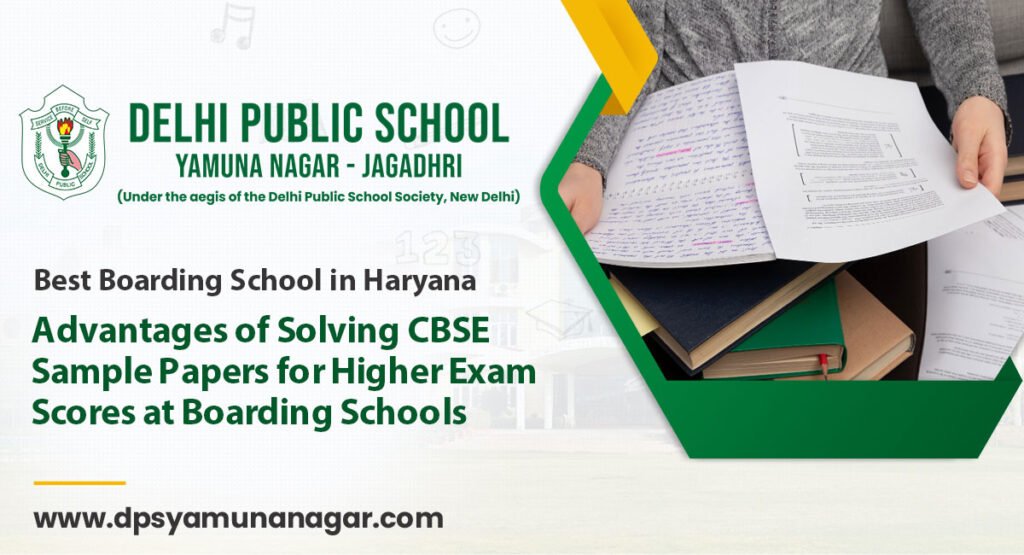
In the realm of academic excellence, the journey towards higher exam scores is paved with thorough preparation and strategic study methods. At Delhi Public School Yamunanagar, recognized as a top residential school in Haryana, we understand the significance of CBSE sample papers in shaping the academic trajectory of our students. We delve into the advantages […]
7 Habits of Highly Effective at Boarding school Students In India
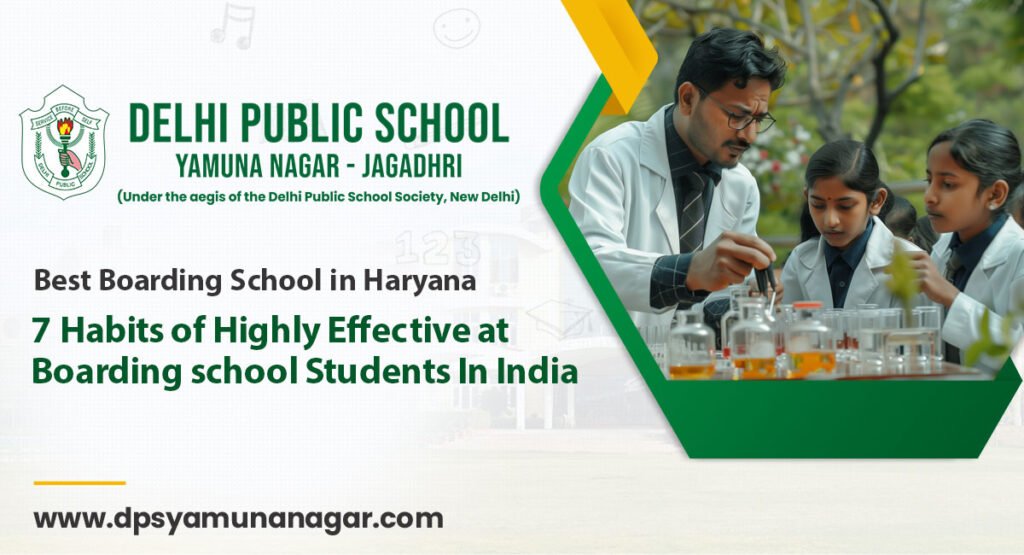
In the realm of education, boarding schools hold a distinct allure, providing an environment that fosters holistic growth and academic excellence. Among the myriad of institutions scattered across the Indian landscape, the best CBSE boarding school in Chandigarh stands out as a beacon of quality education, while also being recognized as one of the best […]
5 Motives for Students to Participate in Sports at Boarding Schools in India
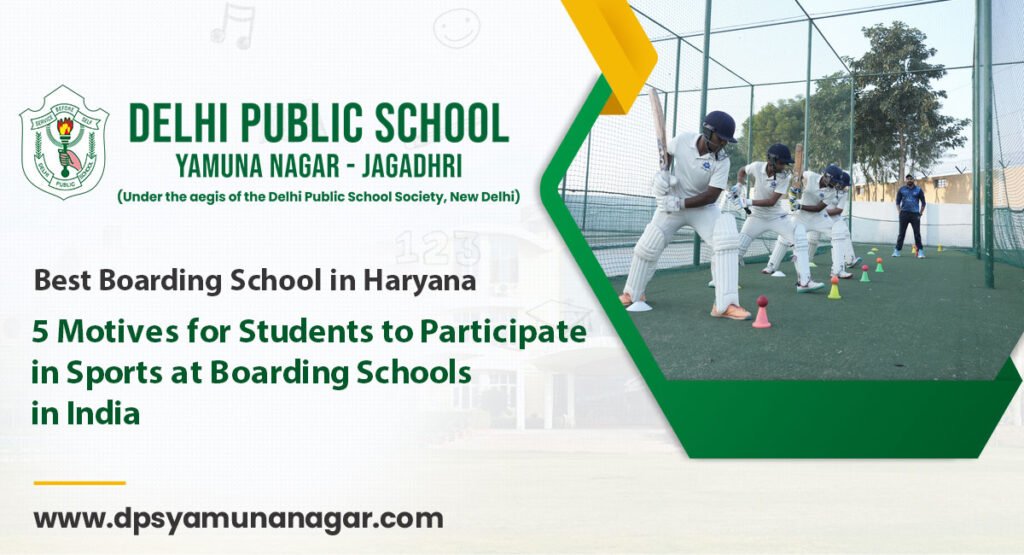
Introduction In the realm of education, boarding schools have long been revered for their holistic approach to nurturing and shaping young minds. Among the myriad of activities offered at these institutions, sports play a pivotal role in fostering physical fitness, mental resilience, and social skills among students. As one of the top boarding schools in […]
Top Three Learning Problems and Their Solutions That Boarding Students Facing in India
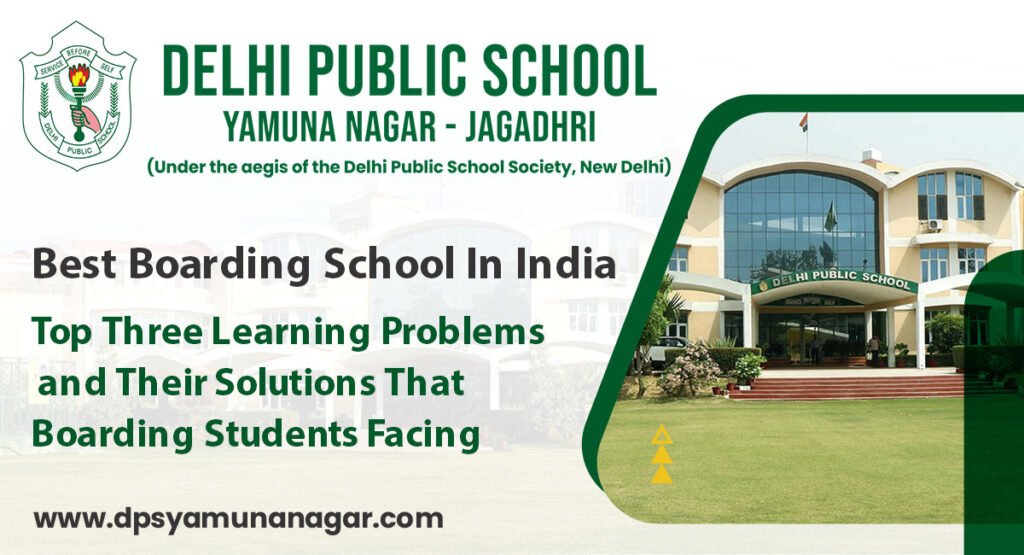
Boarding schools in India hold a prestigious position in the country’s education landscape, renowned for their holistic approach to grooming students academically, socially, and emotionally. However, despite the numerous benefits they offer, boarding students encounter unique learning challenges that require attention and effective solutions. Lets delves into the top three learning problems faced by boarding […]
How boarding schools are redefining the education ecosystem?

In the bustling city of Chandigarh, parents seeking the best education for their children are turning to boarding schools for a comprehensive and transformative learning experience. The demand for the best CBSE boarding school in Chandigarh has been steadily increasing as families recognize the unique advantages these institutions offer. Benefits of Boarding Schools: Boarding schools […]
How do boarding schools make sure that teenagers have discipline?
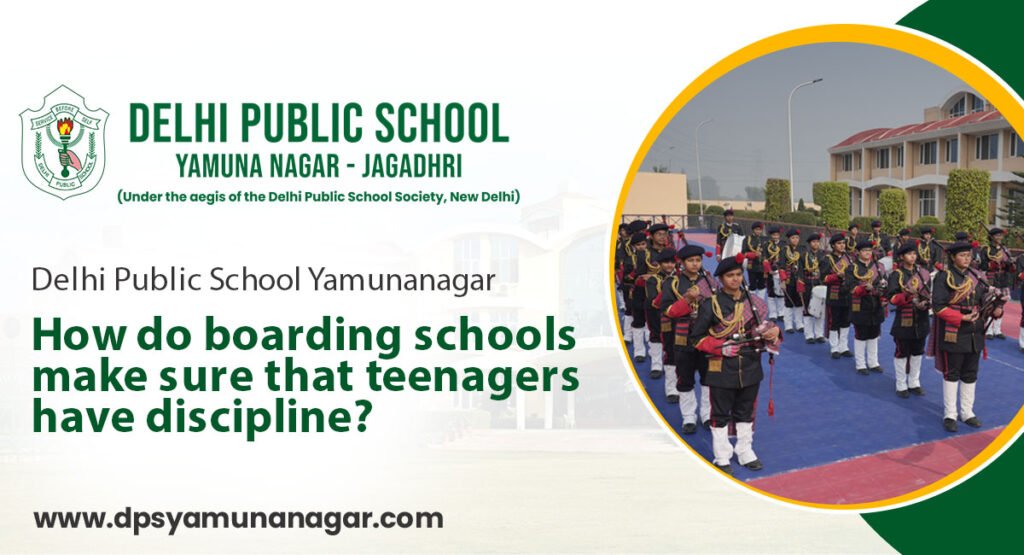
In the realm of education, boarding schools stand out as institutions that not only provide academic excellence but also instill discipline and character in their students. Among these, the best boarding schools in India, especially those affiliated with the Central Board of Secondary Education (CBSE) in North India, have gained recognition for their holistic approach […]
How elements of a digital classroom are simplifying education at residential school in haryana
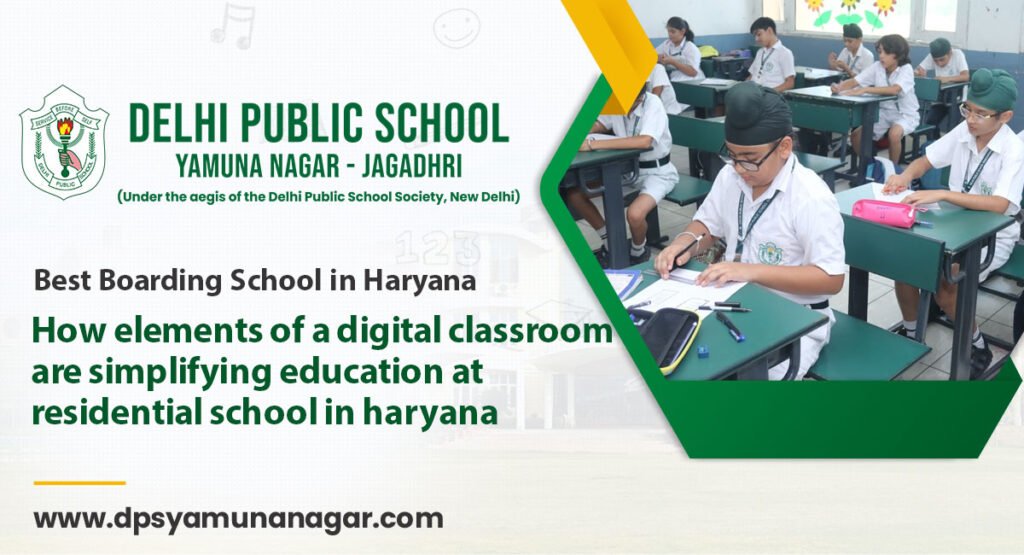
In the heart of Haryana lies Delhi Public School (DPS), a beacon of educational excellence and innovation. As one of the best boarding schools near Chandigarh and a top CBSE boarding school in Haryana, DPS has embraced the digital revolution to transform traditional education. Through the integration of digital elements into the classroom environment, DPS […]
8 Best Revision Techniques for students at india’s boarding schools
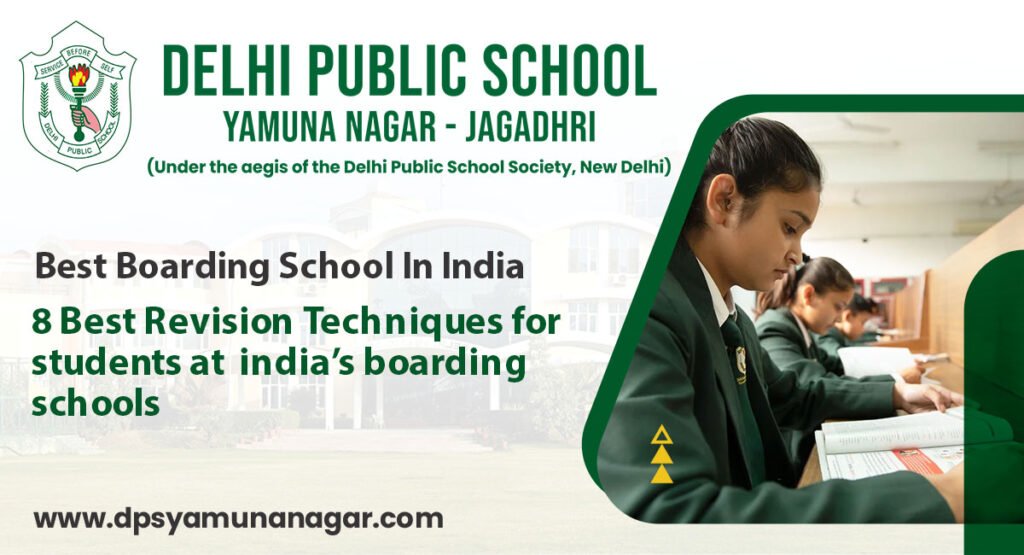
As examination season approaches, students frequently struggle with the task of efficient revision. We’ve put together a list of the top 8 revision strategies to assist them in getting through this crucial stage and improve their exam results.In the realm of education at Boarding schools, success often hinges on effective revision strategies. For students in […]
A Guide To Improve Students Writing Skills at Residential schools
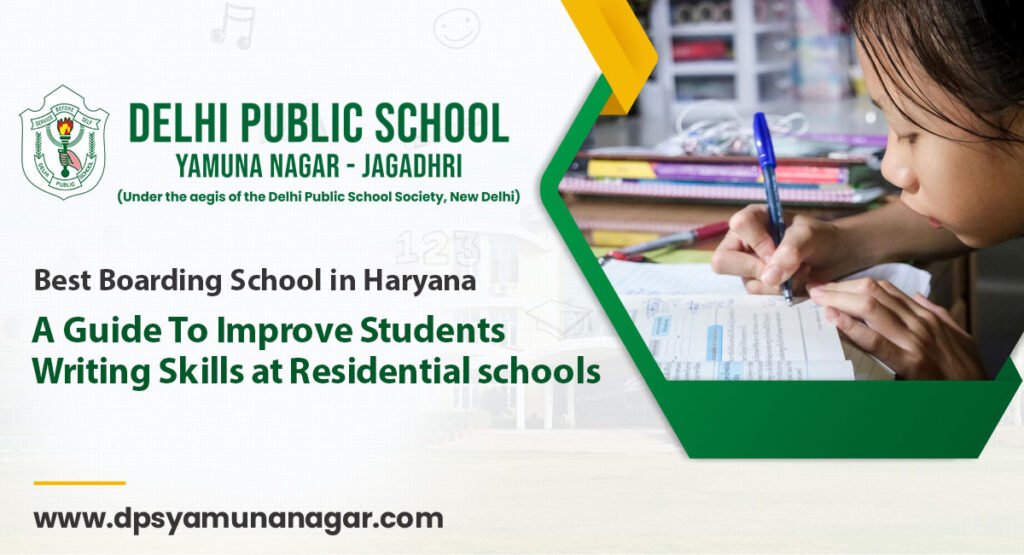
In the realm of education, boarding schools hold a unique position in shaping students’ holistic development. Among them, the top boarding schools in India, particularly those in North India, stand out for their rich academic environment and emphasis on overall growth. One crucial aspect of education that these institutions prioritize is writing skills. Effective writing […]

